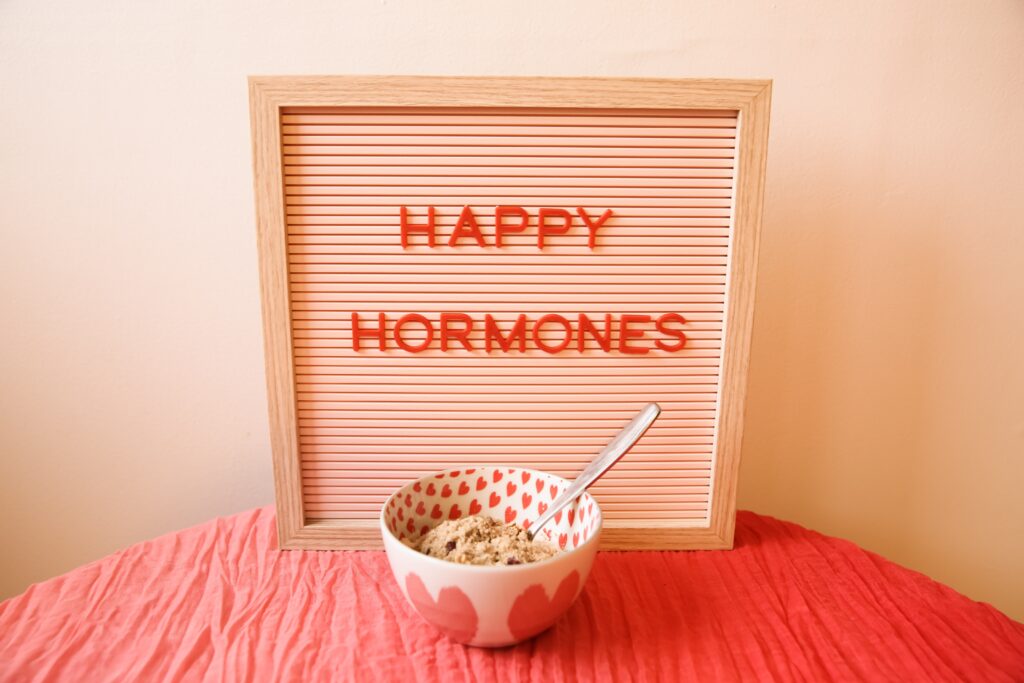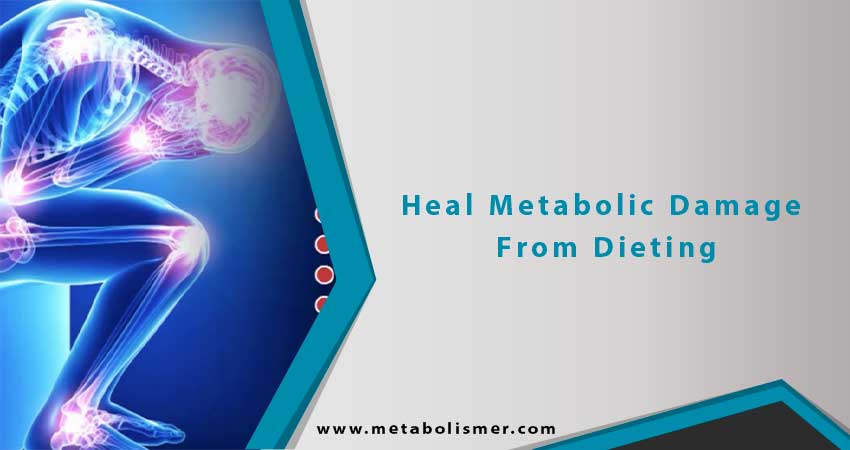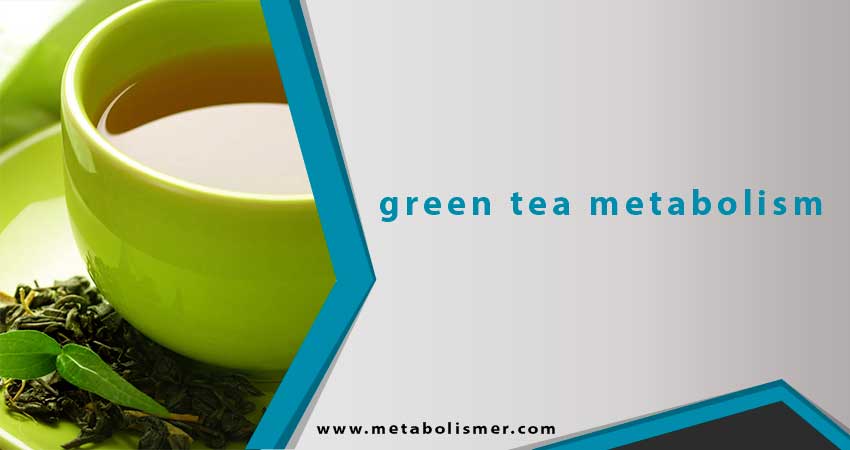HOW I CAME TO REALIZE MY HORMONES WERE TOTALLY SCREWED UP
Based on a true story
I tried putting the pieces together every which way, but the story was always the same.
Doctor after doctor, study after study, test after test, told me this very scary fact: In my quest to be “skinny,” I had abused my body for years and years. Rather than getting thinner, I’d succeeded only in aging myself, screwing up my hormone levels, and teaching my body to be fatter.
Now, before you say, “Jillian, give me a break—look at your body,” hang on a sec. If you’ve seen me on TV, you know I’m not a slacker. (I guess you don’t get called “TV’s toughest trainer” for being a softy.) True, I have logged many hours in the gym. I have literally worked my butt off for the body that I have.
But that’s my point: Despite all of that work, my body still wasn’t responding the way it should have, which is when I realized I was missing a piece of the puzzle. Today, it kills me to realize that I could’ve done half the work to get the body I have, had I just known then what I know now.
Now I know that the solution to living happily and healthily is hormone balance—not an impossible regimen that sucks the joy out of life. When I learned how to eat and live in a way that balanced and optimized levels of key hormones, most of my weight-loss battle was won before I even set foot in the gym.
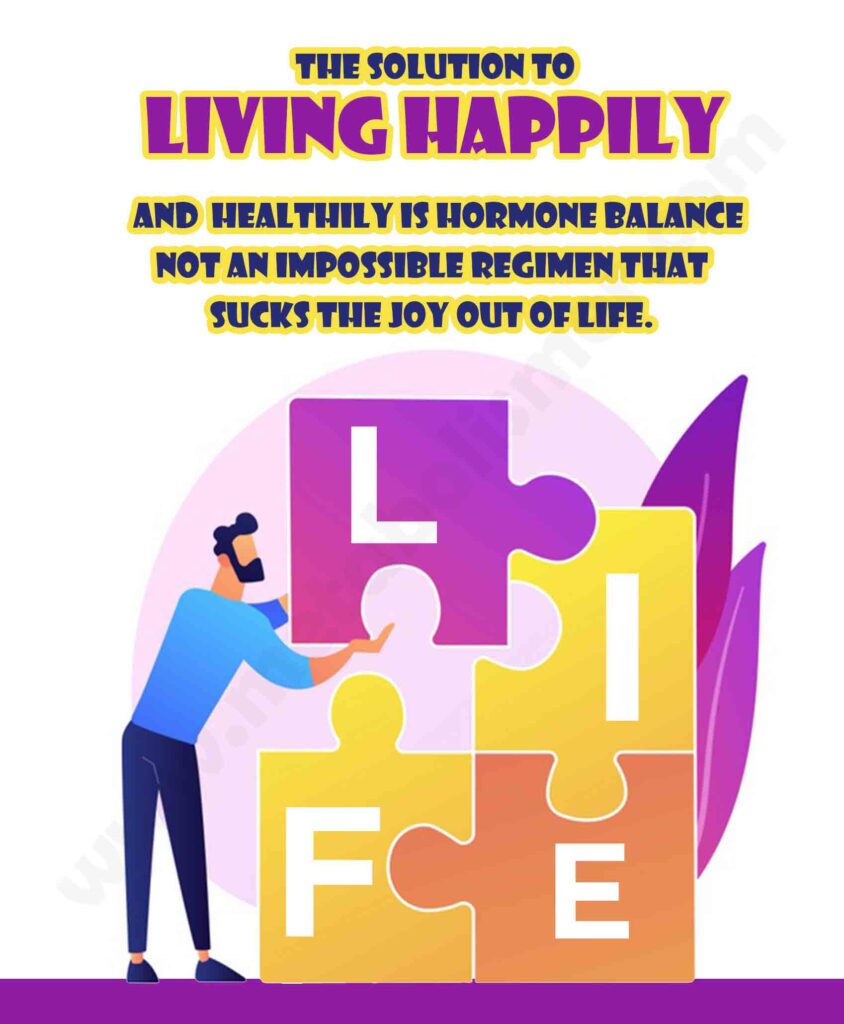
HORMONE HELL
* a scale that’s stuck, no matter how little you eat or how much exercise you do?
STRIKES AGAIN
Let me guess. Do you have:
* a sagging energy level that seems only to be getting worse?
* skin that’s starting to turn sallow or wrinkle excessively—and you’re not even past forty?
* skin that’s constantly breaking out—and you’re decades past adolescence?
* moods that peak and trough unpredictably?
* a monthly cycle that drives you (and everyone around you) absolutely nuts?
* crushing fatigue that doesn’t improve, no matter how much sleep you get?
* a burned-out, slightly “crispy” feeling that you can’t shake?
* Have you lost and gained the same five, ten, twenty pounds, over and over?
* Or, more likely, have you lost and gained steadily more each time, losing ground, getting more and more hopeless?
I did, too. All that and more. I knew something was wrong, but I couldn’t figure it out—I thought I was going insane. That’s when I started digging into the field of endocrinology—the branch of medicine that deals with hormones—and slowly but surely realized (with no small amount of horror) that I was bringing a lot of this on myself.
But it took me a really, really long time to figure that out—and I don’t want that to happen to you.
A NATION OF HORMONE IMBALANCE
When I look around, I know I’m not alone. There are a lot of screwed-up endocrine systems out there. The statistics tell the story:
- 24 million Americans have diabetes (1 in 4 don’t even know it yet).
- 57 million Americans have prediabetes.
- 1 in 4 people have metabolic syndrome.
- 1 in 10 people have an underactive thyroid gland.
- 1 in 10 women have polycystic ovarian syndrome (PCOS).
- 1 in 13 women have severe PMS.
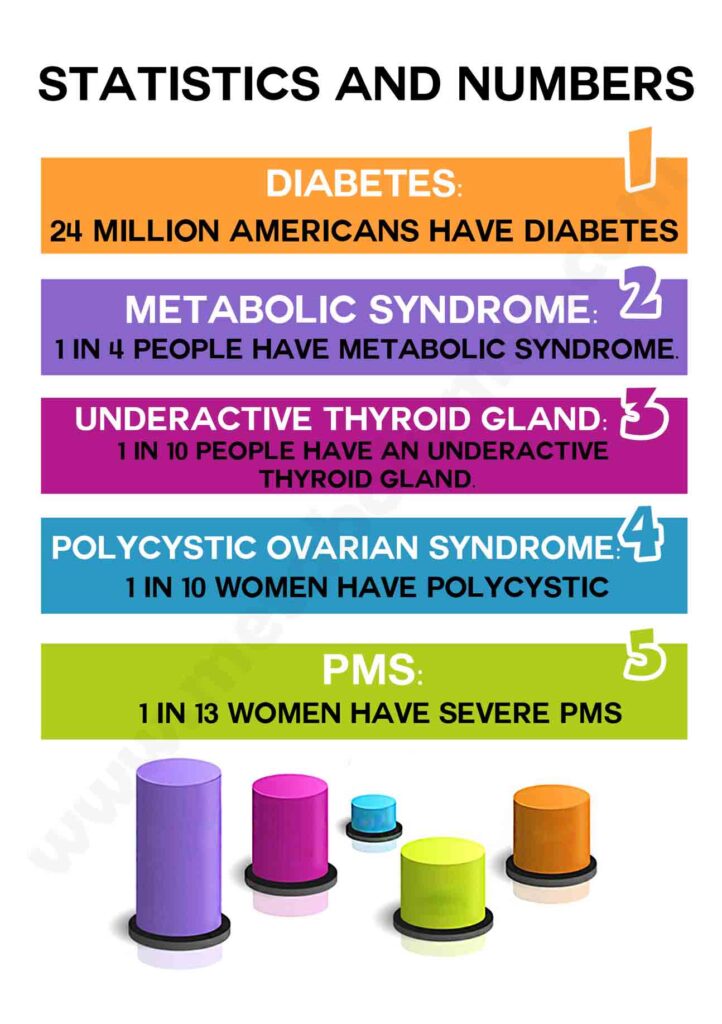
That’s before we even start talking about the 33 million women barreling straight toward menopause. Boomers, sure, but I’m talking about the first Gen Xers, too. Then add on another 33 million men headed for andropause, aka “male menopause,” which, yes, really does exist.
All of these conditions are caused by hormonal imbalance. Some are the predictable result of aging; some are brought on by genetic predisposition. But what’s the most common symptom of an out-of-whack endocrine system?
Excess body fat, plain and simple.
Obesity—not to mention premature aging and disease—is caused by hormonal imbalances that gradually wear down the endocrine system until it is tricked into packing on pounds. And once your metabolism thinks you want to put on weight, it does all it can to accommodate you.
That’s why two out of three of us are overweight, and one in three of us have become obese.
Together, we’re going to reeducate you and your metabolism so that your body becomes a naturally vibrant, invigorated fat-burning machine.

THE GREAT HORMONAL FAKE-OUT
Any and every body function you can imagine is controlled by your hormones. From minute to minute, your biochemistry tries to maintain homeostasis—a sense of balance—in your body.
In addition to helping all the systems of your body—your kidneys, gut, liver, fat, nervous system, reproductive organs—communicate with one another, your hormones have another enormous job.
Whenever your body interacts with millions of external variables—the contents of your meal, the time of day, the intensity of your workout—your endocrine system responds, releasing hormones to help you balance your blood sugar, go to sleep, burn fat, or build muscle.
The only problem is that sometimes those external variables shoot way off the charts, and your hormones don’t know which way is up. They try to help your body regain balance, but in the face of unhealthy foods, environmental toxins, or too much stress, they begin to overreact and over-compensate. And that’s when the problems start.
Too many stressful deadlines spike belly-fat-creating cortisol. Synthetic estrogens in the environment assault the body from every corner, and fake out your testosterone.
Too many missed nights of sleep make fat-burning growth hormones dip low. Skipped lunches make the hunger hormone ghrelin jump. Addictions to sugared sodas stop satiety (fullness) hormones like leptin from working.
These dramatic hormonal shifts weren’t part of your body’s original plan. So the unpredictable fluctuations start to wear down your body’s natural regulatory processes.
What do you know about metabolismer boosting metabolism program?
Your endocrine system no longer understands what balance looks like. It stops responding the way it should. Your organs take a beating; your glands burn out. You get hypothyroid, leptin-resistant, and insulin-resistant.
And then you gain weight.
There’s evidence of a national endocrine meltdown everywhere. More Americans are overweight than ever before—72 million of us. Obesity is the second leading cause of preventable death. Only the act of lighting known carcinogens on fire and repeatedly inhaling them into your lungs— aka smoking—beats it out for the deadliest spot.
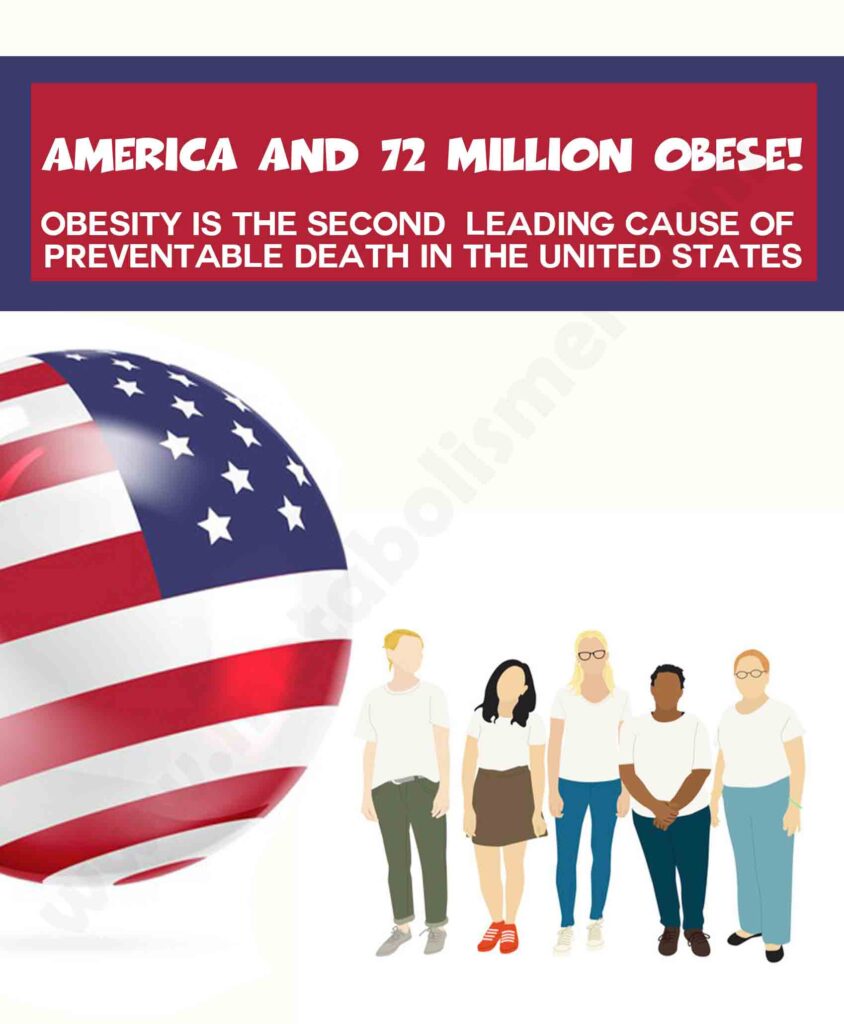
People who are obese are 50 to 100 percent more likely to die earlier than people of normal weight. They also have a higher rate of many debilitating and/or deadly conditions:
- Arthritis
- Atherosclerosis (hardening of the arteries)
- Cancer (especially cancer of the pancreas, liver, kidney, endometrium, breast, uterus, and colon, and possibly leukemia and lymphoma)
- Congestive heart failure
- Coronary heart disease
- Crushing depression
- Devastating social stigma
- Gallbladder disease
- Gout
- Heart attacks
- High blood pressure
- High cholesterol
- High triglycerides
- Respiratory problems
- Sleep apnea
- Stroke
- Thicker heart walls
- Type 2 diabetes
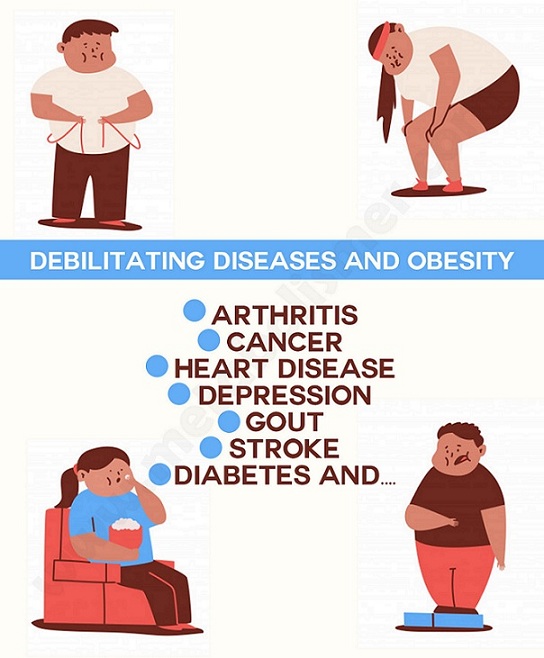
I wish I were making this stuff up to scare you, but I’m not. We’ve all read the headlines. We know there are supposedly many reasons why this is happening: twenty thousand cable TV channels, super mega cheeseburgers, processed foods, fifty-mile commutes to work, seventy-hour workweeks.
But there are other reasons that no one seems to be talking about. What about the chemicals in our air, water, cosmetics, clothes? How about the weed killer on our neighbors’ lawns? How about the plastic that’s invaded every corner of our world?
We’ve demonized our “supersize me” habits for a long time. But there are many other environmental, dietary, and societal factors that have come into play only in the past thirty years, and a vast number of them disrupt our hormones and switch off our metabolisms.
I have watched so many people I love go down the path of hormone-induced early death. You know that guy—maybe you are that guy—with a barrel of heart-attack fat strapped onto his waist. Or that woman who finds a lump in her breast at twenty-eight. Or the kid who gets diagnosed with “adult onset” type 2 diabetes before he’s allowed to see a PG-13 movie.
This last one is such a heartbreaker for me. The diagnosis rate for diabetes has shot up 40 percent in the past decade. What the heck is going on here? Why are our hormones spinning so out of control, and how are we ever going to stop them?
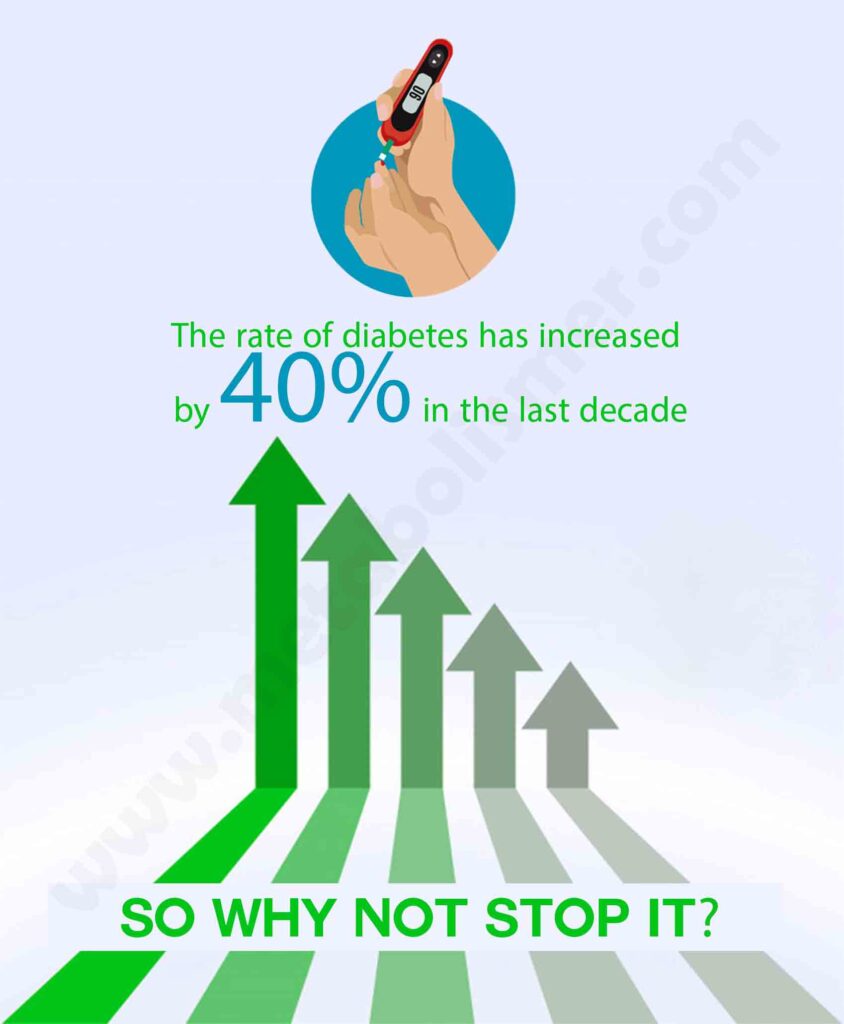
Clearly, there is only one way. We have to wake up and realize that every bite we take and every lifestyle choice we make matters.
Not just for calories or fat or carbs, but because those bites or choices tell our bodies how to react. With bite after bite, sip after sip, breath after breath—when we pick the wrong foods or surround ourselves with toxic chemicals, each moment of consumption tells our hormones to do things that, consciously, we would never want them to do.
We have to learn how our modern food supply and toxic world interact with our hormones. We have to understand exactly how they make us overweight and sick. That’s the only way we can set it right again. And that is what Master Your Metabolism is all about.
CONFESSIONS OF A FORMER FAT KID
Just how far have we strayed from the path of natural hormone balance? Pretty damn far, actually. And I know, because for many years of my life, I was way, way off it myself.
I’m going to tell you what happened to me, how my hormone levels got entirely messed up, not because it’s so unusual, but because many of the same things have probably happened to you and everyone you know.
Without realizing it, even a fitness guru can have all her hard work undermined by out-of-whack hormones—so how does a teacher or a salesman or a stay-at-home mom stand a chance?
It all began when I was a total chubster.
I may look ripped now, but I spent my early years constantly struggling with excess weight.
Part of what started it all was living with my dad. My dad was an addict. And food was just one of his addictions. He was also very likely hypothyroid, although none of us knew that at the time. But his addiction to food and his genetic predisposition for being overweight definitely was transferred to me.
French fries are one of the three most common vegetables consumed by infants 9 to 11 months of age.
I’d hang out with my dad at home when my mom was going to night school studying to be a psychologist. Food was the only way that he knew how to show affection or relate to me. He would make huge buckets of popcorn and we would watch Buck Rogers together. Or we would make pizzas together. He even got into making us homemade ice cream.
If we left the house, we’d go out to our special chicken schwarma place, or the burrito place we liked. Food became one of the only connections I had with my dad.
But my issues with food didn’t all come from Dad. My mom, who was always skinny, would sometimes use food as a reward.
I was an only child, and if my parents were both out, they would leave me with a sitter. I hated being with a sitter.
So before the sitter got there, they’d take me to the bakery and say, “Pick whatever you want.” Or my dad would just order me a napoleon because that was his favorite.
And on the way out of the bakery, I could have a rum ball, an extra little baked confection. Those things still have such a bizarre emotional connection for me, it’s scary.
My mom knew I missed her when she went to work, so before she left for the day, she’d say, “What would you like from the vending machine?” As soon as she got home, she’d bring me my Twix bar.
I had an elaborate Twix-eating ritual: First, I’d carefully eat the entire caramel layer off the top of the cracker. Then I’d dunk the cracker in a glass of milk. These food rituals were a comfort to me. They were steady, consistent, reliable—and eventually very destructive.
Metabolism miracle program is the only way to losing weight
That’s how it always was in my family, as far back as I can remember. Once when I was three years old, my parents were having a conversation about separating.
They gave me a bag of Cheetos and put me in the kitchen while they argued in the next room. I remember sitting at the kitchen table alone in front of a huge bag of Cheetos, wondering, “What does this mean for me?” No brothers or sisters at the time.
No real support, but the Cheetos were there for me. The food kept me company. It gave me something to look forward to that I knew was consistent and wouldn’t let me down.
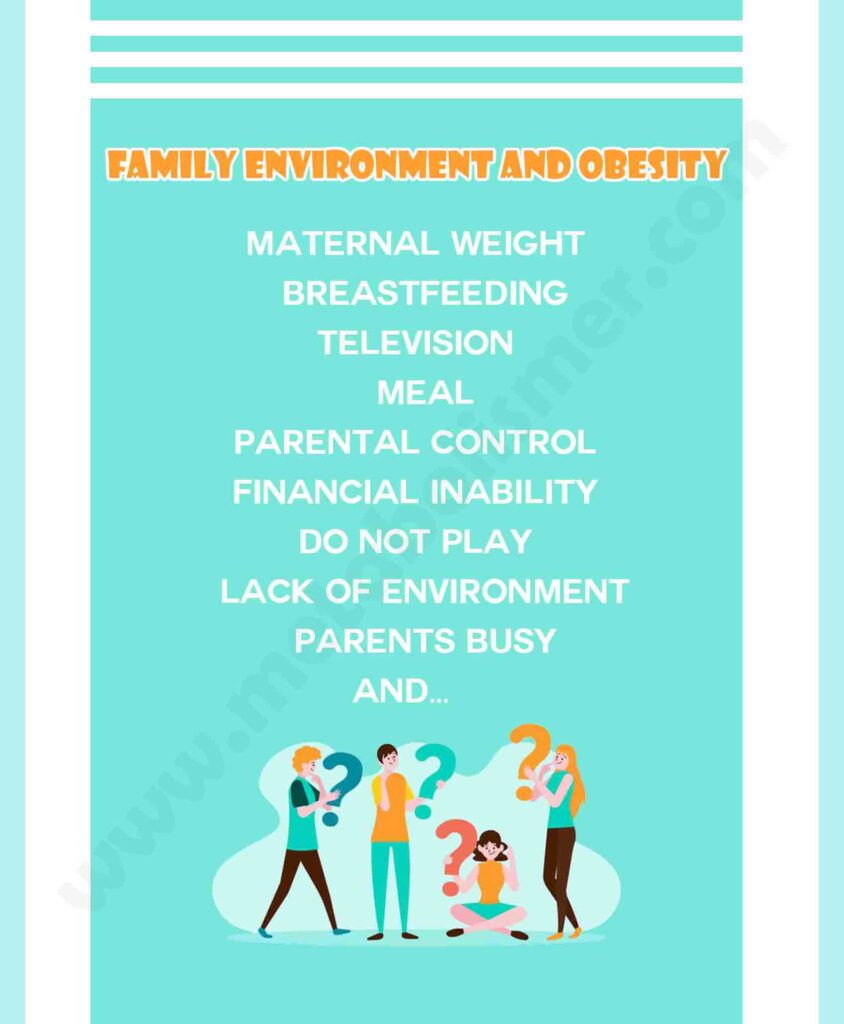
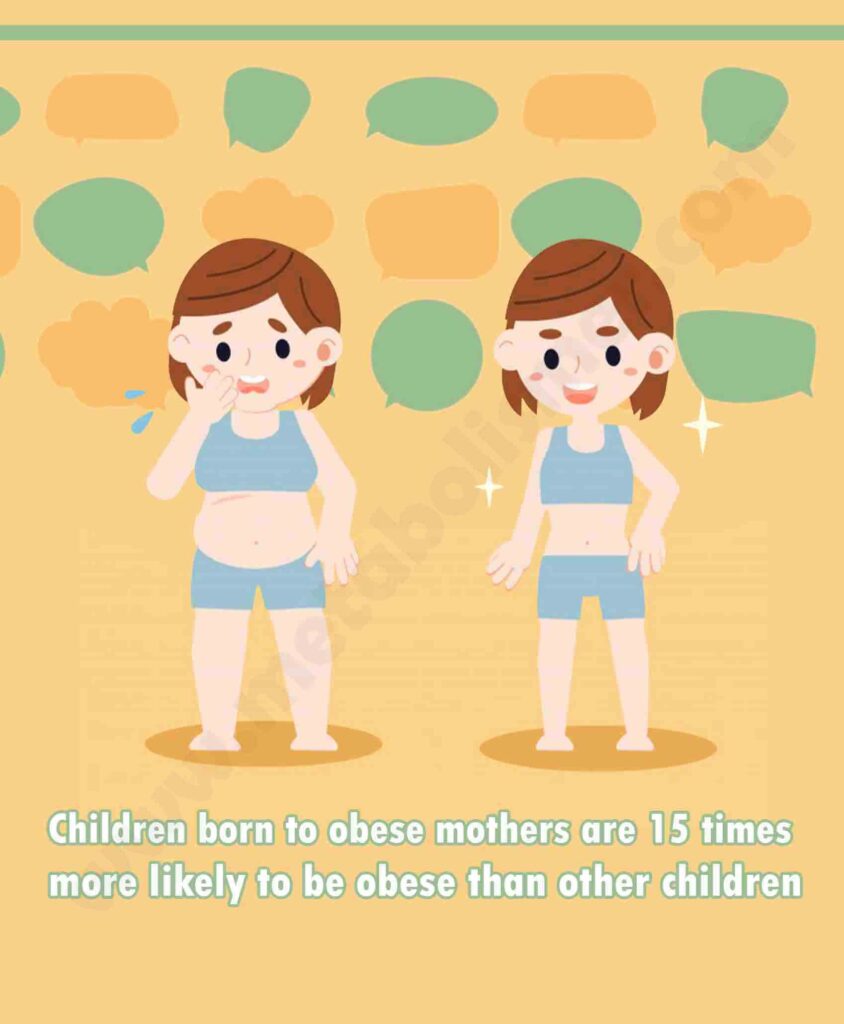
THE ROOTS OF FAT, PART 1:
IT’S (PARTIALLY) IN THE FAMILY
Consider these elements of the family environment that are associated with an increased risk of developing obesity:
Mother’s weight: By the age of 6, kids born to overweight mothers are 15 times more likely to be obese than kids born to normal-weight mothers.
Breast-feeding: Numerous studies link breastfeeding to lowered chance of childhood obesity. Some experts estimate that bottle-fed babies have a 15 to 20 percent greater chance of being obese than breast-fed babies.
Television: Every hour of television teens watch increases their risk of developing obesity by 2 percent. Reducing televisionviewing to 1 hour a week could cut the number of obese teens by almost one-third.
Family meals: A survey of 8,000 kids found that those who didn’t eat many meals with their family but watched a lot of TV were more likely to become overweight by the third grade.
No outdoor play: If those kids also lived in unsafe neighborhoods that didn’t allow for outdoor play, they’d be fat by kindergarten.
Parental control: If parents are very controlling about what kids eat, their kids never develop the ability to self-regulate their intake and will likely become overweight.
Dieting too early: Boys and girls who are encouraged to diet are three times more likely to be overweight five years later, due to increased binge eating, skipped breakfasts, or other unhealthy attempts to lose weight.
Poverty: Lower income combined with any of these factors increases the risk of obesity dramatically. I believe that toxins in our environment target the most vulnerable people: poor children whose parents can afford only the most widely available, genetically modified, pesticide-laced, corn-and soy-based processed food.
Sad, huh?
My parents ultimately got divorced when I was twelve. Not coincidentally, that was really the pinnacle of my weight gain. Everything was falling apart for me. I was skipping school, failing in my classes, experimenting with the contents of my parents’ liquor cabinet—doing all kinds of bad things, dangerous things.
I started stealing my mom’s car after school—now, bear in mind, I was twelve. I’d get home in the afternoon while she was still at work, and grab her spare keys. I would take out the Jeep Cherokee and race around the neighborhood like a crazy person. I was very lucky that I didn’t kill someone, including myself.
While I was out in the car, I’d hit my fast-food regulars. It started with a Taco Bell run: two bean and cheese burritos with no onions and extra cheese.
Then it was two bean and cheese burritos with no onions and extra cheese and a taco. Then, three bean and cheese burritos with no onions and extra cheese and a taco supreme—and, come to think of it, sure, throw in the cinnamon sticks and a Coke.
Or, after school, I would order a Domino’s pizza, go sit on the roof of my house, eat the whole thing. Or I would get a bag of Cheetos and eat the entire bag while I watched Punky Brewster or The Facts of Life—I would just sit on the couch and gain weight and be miserable.
Around this time, I started having dreams that I was a POW in a war zone. I became obsessed with movies about the Vietnam War, and I literally started to believe I was a reincarnated POW. The day my parents’ divorce was finalized, I kicked a hole in the wall.
I was twelve years old, five feet tall, and weighed about 175 pounds. (In other words, I was two inches shorter and 55 pounds heavier than I am now.)
My mom took a good look at me and realized she had to act—and fast. She took me to a therapist, but thankfully she also recognized that I needed a physical outlet to release my anger and frustration.
And that’s when martial arts saved my life.
ENTER EXERCISE AND POWER
At the time, my mom was dating this guy whose nephews were taking martial arts from a teacher who was a bit unconventional, to say the least. I was intrigued.
At some level, my mom sensed it would be the right thing for me, but sending your kid to this instructor was kind of like sending her off to military school. He did not mess around.
His name was Robert David Margolin and he taught out of a dojo in his garage in the Calabasas Hills. Robert created a hybrid style, a mix of aikido and Muay Thai called Akarui-Do. In essence, he was one of the first mixed martial arts pioneers. He became a sort of father figure to me—but he was definitely a renegade.
He was very extreme, and I loved it. It felt more real to me than a tamer, more conventional approach would have. I guess I’m just drawn to extremes. (You might have guessed this about me already.)
Children who play sports are 80 percent less likely to be overweight than kids who never played any.
The men at that small dojo became like brothers to me. They were all dedicated to their health and were driven, spiritual, and focused. Because I looked up to them so much, I began to realize that all the other stuff I was doing—the drinking, the ditching school, and basically making a mess of my life—was not cool. This was cool to me. I wanted to be just like these people. I wanted to impress them.
So, what was it Rob said to me that finally got my ass in gear? Here is the story. I believe everyone who is serious about changing their lives has one of these—I call it “the rock-bottom moment.” It’s the epiphany that ultimately drives you toward change—no matter what.
One day while I was waiting for my lesson, I was standing there, scarfing down my bag of Cheetos. Robert came out to get me, took one look at the bag, and threw me out of the studio. “You’re wasting my time,” he said to me. “And until you’re ready to pick up what I’m laying down, you’re wasting your own time, but I actually value my time.
So get out.” I felt the blood drain out of my body. He saw how stunned I was. “If you want to take this seriously, and take yourself seriously, then come back and I can help you out.” And he shut the door in my face.
Robert’s message to me, which became my guiding philosophy since that moment, was: The entire journey to health is about power. The definition of power, in my opinion, is learning how to make your dream a reality.
Let me tell you a little secret: I don’t love working out. Sometimes I do, but it’s rare. I couldn’t care less if somebody has six-pack abs or buns of steel. Don’t get me wrong, if you have that, good for you. But fitness is about so much more for me.
I use fitness to empower people. It makes people feel strong and confident and potent, and that strength transcends into other parts of life.
And now I understand that it’s the same with your diet and other aspects of your lifestyle. Once you make the decision to take control of what goes into your body, you’re able to harness that power.
By recognizing that forces outside of your body have been disrupting your internal biochemistry, and taking steps to optimize your hormones, you’re tapping in to that same power, reclaiming it for yourself.
The day Robert kicked me out of his studio, I was fourteen. I’d been there just over a year.
I suddenly realized how far I’d come. I’d gone from being the fat kid in school who couldn’t take her eyes off the ground— the one who ate lunch in Mrs. Cronstad’s office every single day because I was so afraid to show my face in the school yard—to being the kid who would walk down the hall and look people in the eye and think, “You can’t talk to me like that—I just broke two boards with my right foot. Bring it.”
I couldn’t risk losing that power again.
Working with Robert turned me around psychologically, gave me confidence, and showed me a way of life that I valued and that would help me achieve my dreams. He helped me realize that the stronger I was physically, the more potent I was as a human being.
But I still didn’t understand one key thing. Robert didn’t care whether I was skinny. I did. But he couldn’t have cared less. He wanted me to eat a healthy diet to take care of my body, but I didn’t really get that part of his message until many years later.
HOT YOUNG THING
By seventeen, I was a certified fitness trainer. And I was vain.
I was a young woman living in Los Angeles. Naturally, I wanted to look good. I was voracious about it. There was nothing that I didn’t read or know about. I had every trade magazine, from Muscle & Fitness to Shape. I read every diet book, tried every fitness craze. I saw what worked and what didn’t.
I was studying Navy SEAL training, poring over books about Bruce Lee and Israeli SWAT team methods.
I spent hours and hours in the gym, doing the craziest stuff—I was doing plyometrics and high-intensity workouts a decade before they hit the mainstream. I would go to the gym and hang upside down by one gravity boot or do one-arm pull-ups like it was nothing.
People at the gym would see me and think, “What the heck is this girl doing?” Then a couple of them started coming up to me and asking me to train them.
That’s how my career as a trainer began—people wanted me to teach them all the crazy stuff I was doing to myself.
I wasn’t even thinking of making a career out of it. I was already bartending at night. (With a fake ID, I might add—still a bit of a rebel. Some things never change.) I was making really good money for a teenager.
I didn’t need the extra money. I never looked for clients. I just thought, “Well, I’m doing this for me, but if you want me to, sure, I’ll train you. What the heck? Could be fun.”
Of course at that point I had no idea this would be my destiny, helping people change their bodies and their lives through fitness and health. I was still going through my own saga, my own continuing struggle with my weight.
The average American woman has tried to lose weight at least 10 times.
I was obsessed with finding the right ways to burn fat, not just for my clients but for me. For example, for a while, I followed the prevailing belief that the most effective way to burn fat was to work out on an empty stomach.
Then I had the chance to talk to a biochemist about it and came to find out that it was exactly the wrong thing to do because your body will metabolize its own muscle tissue! Scratch that, move on to the next thing.
I did the same thing with my diet. I experimented with Pritikin, Atkins, Blood Type, pH, Paleolithic, vegetarianism, food combining— even the dreaded Master Cleanse—you name the diet, I went on it. Why? Because I wanted to be skinny!
For a full decade, I treated my body like I was a lab rat. How could I have dreamed that all these extreme experiments were messing with my hormones? All I cared about was never going back to being the fat kid, and frankly, I didn’t care how I got the results I was looking for.
Working in the gym, reading up on all the latest diet research, I was totally in my element, loving life. But then, somehow, I got lost in cubicle land for a few years.
THE RAT RACE CLAIMS ANOTHER RAT
Have you ever made a choice in your life that seemed like a mild course correction but turned into a major detour? That’s what happened to me, and it took me years to get back on track.
I was happily training people during the day and bartending at night, not thinking so much about the future, just having fun. But then I started taking flak from a guy I was dating. “Jillian, you’re twenty-three,” he said. “You live in Los Angeles.
You can’t be a trainer [as if he were saying drug dealer] for the rest of your life. You need to get serious. You need to get a career.”
From that point on, I thought, “Oh, I guess being a trainer isn’t a real career.” Probably the saddest part was that I didn’t think of training people as a career precisely because I liked it so much. Something so fun couldn’t be work, right? Tragic.
I told myself I needed to get serious and find an “adult job.” So I went to work at a major talent agency in Los Angeles.
For the next four excruciating, soul-crushing years, I burned the candle at both ends, holding down a sixty-hour-a-week desk job with sky-high stress and 100 percent butt-in-chair time.
Yet even if I had to do my workout at midnight, I was still working myself into the ground at the gym, still obsessed with health, still training—I just wasn’t training anybody else.
During my few off hours, I was still voraciously devouring every diet out there: Oh, are we on the Zone now? Hold on, now we’re doing metabolic typing, is that it? What’s this South Beach thing—is this the way? Because it was always a constant battle with my weight, my body, my health. Day in and day out, I was slavishly counting every last calorie.
About this time, I noticed that I had a kind of blotchy brown spot on my face that wouldn’t go away. I went to the dermatologist. Turned out I had melasma, also known as “the mask of pregnancy,” extreme hyper-pigmentation on the face that’s often caused by high levels of estrogen and progesterone. My dermatologist looked at it and said, “We could do a peel to lighten it.”
I thought, “Peel it? Hang on—why am I getting it in the first place?” I’d never been pregnant and I wasn’t on birth control pills. What was going on?
I didn’t have time to think about it. Stressed to the gills, living on processed (i.e., fake) diet foods, artificial sweeteners, sugar alcohols, and caffeine, I was forcing myself through my days, gutting it out through a sheer naked addiction to Diet Coke—I’d have a six-pack, or more, every day.
From the outside, my job was really glamorous. I didn’t wait in line at restaurants. People “knew” me. I worked in Hollywood, for goodness’ sake. I thought I was a big shot.
People who report job stress have a 73 percent higher chance of developing obesity and a 61 percent higher chance of developing abdominal fat than people who report none.
But in reality, I hated my job, hated what I was doing. Every morning I would wake up and basically want to scream. I felt like my life had no meaning.
You know that saying, “Things are always darkest before the dawn”? My darkest point was getting caught in a power struggle between two agents.
I knew something terrible about one of them, something he’d been doing that would definitely get him fired, if not sued.
The stress of knowing this information was too much for me. (Plus, to be honest, I really couldn’t stand him.) So when the upper management pulled me in to question me about what he’d done, I spilled it. The whole story. I told them what he’d done and how he’d done it.
You see where this story is going, don’t you?
The agent renegotiated his contract. They fired me. And now I had a mortal enemy for life.
What happened next was straight out of You’ll Never Eat Lunch in This Town Again. He blackballed me all over town.
I couldn’t get a job. I couldn’t even get off the couch. I just sat there thinking, “I wasted four years of my life killing myself for no reason, being miserable. And for what?”
At a certain point, I had no choice—I had to make money. A friend hired me at a sports fitness place to be a physical therapy assistant. I had to suck it up and work for about a tenth of my former salary, putting towels on kids who were assistants at the company that had just fired me— kids I’d sent to that gym when I was their superior at work! The whole experience was just mortifying.
And just about the best thing that ever happened to me.
A bad day for your ego is a great day for your soul.
HOME AGAIN AND VERY CLOSE TO ANSWERS
As it turned out, that gigantic ego check was exactly what I needed. The move put me back in my element and made me humble and hungry enough to work hard again.
After a long time of trying to live up to someone else’s definition of success, I was back where I belonged. And happy, for the first time in years.
Within just a few months, I’d helped the center extend its offerings and open a full gym.
My client list started to fill up—I was working with celebrities like Vanessa Marcil and Amanda Peet, Hollywood agents and producers, all new clients who had come to me because of my time in the entertainment industry.
As I became more established, I would get to speak with these celebrities’ nutritionists, dietitians, and sports medicine doctors, all the best in the business.
Believe me, I never wasted a chance to pick their brains. I’d take these theories that I learned and say, “Explain Atkins to me. Where’s the science behind this diet? What is it really doing?” The picture was gradually becoming clearer, but I still wasn’t putting all the pieces together—especially not about what was happening in my own body.
By the following year, I had opened my own sports medicine facility in Beverly Hills, complete with three physical therapists, a physiatrist, and a chiropractor.
Soon after that, I started getting calls from Shape, Self, Red-book, and Marie Claire whenever they needed an interview on a new fitness, diet, or weight-loss phenomenon.
Professionally I was rockin’ and my future looked bright. But through it all, I was still constantly struggling to keep my weight down.
The only reason I was staying in shape was because I was meticulous, and I mean me-ti-cu-lous, about counting calories. I was training my body rigorously for seven to eight hours a week. Even as I told my clients to drink tons of water, I was heavily addicted to caffeine, pounding diet sodas hourly.
For each can of diet soft drink consumed each day, a person’s risk of obesity goes up 41 percent.
God forbid I should fall off the wagon for a few days. I’d instantly gain five pounds, which would then drive me back to the grueling routine. After all the effort I’d put into learning about diet and nutrition, I just couldn’t figure out why all my working out and freaky eating habits weren’t doing the trick. I really thought I’d been royally screwed in the genetics department— that my metabolism just sucked, and I would never be able to have it as easy as some of my friends.
But as it turned out, the reality was that a body can handle that kind of strain for only so long before it gives out completely. Which is what happened when I joined the cast of The Biggest Loser.
Now, if a girl’s gonna go on TV and inspire people to lose hundreds of pounds, she’s gotta look good, right? That was my guiding thought as I prepared to be on camera.
“I have to be ripped. Gotta make an impression,” I’d tell myself, so I would severely restrict my calories to twelve hundred a day while killing myself in the gym.
This was the only way to get my body in amazing shape. I had one chance to get people’s attention and make an impression. I had to be in the best shape of my life—to walk the walk, you might say.
Well, I walked the walk, all right—the walk of the living dead. I was exhausted. Worked to the bone and stressed to the max.
As soon as the season ended, I went from twelve hundred calories a day to a healthy eighteen hundred, a perfectly reasonable shift for someone who worked out as hard as I did.
And I put on fifteen pounds practically overnight.
But it wasn’t like I just went home and stuffed myself with pizza. I was still working out five hours a week! If I had a single glass of wine, I gained weight. Again, I had to kill myself to get it back off.
Something else was going on. This is ridiculous, I thought. Something was definitely wrong with my metabolism. It just shouldn’t be this bloody hard.
FINDING THE KEYS TO THE KINGDOM
Then, right about this time, I hit the big 3-0. Funny thing about turning thirty, it really makes a person think—about the possibility of having kids, about the desire to live longer and healthier.
Up until that point—and this might seem a little bit funny—I had always assumed I was going to die young. When I got there, I realized I wasn’t James Dean—I wasn’t going to get the easy way out. And I didn’t want it! I wanted to have a long life, to grow up and age gracefully.
After age 20, basal metabolic rate drops about 2 percent per decade; after 40, it slows down 5 percent per decade.
The journey wasn’t just about being thin anymore; it was about health and longevity, too. I wanted not just a skinny body but a healthy, happy, and long life as well.
At this point, a good friend and client of mine had been seeing an endocrinologist.
I got on the phone with this doctor to discuss the health and wellness of my client, which was totally routine for me.
I’d pretty much worked with the entire medical community of Los Angeles, seen or talked to every dietitian, sports medicine doctor, biochemist, chiropractor, podiatrist … you name it. But this was my first endocrinologist.
While talking to this doctor, I finally understood why my client wasn’t seeing results.
All the missing pieces of the puzzle were right in front of me. My client had hypothyroidism, which is why we couldn’t get off her last fifteen pounds.
She was also suffering from PCOS, which is linked to type 2 diabetes, which was also making her metabolism function at a snail’s pace.
Whoa. I knew she had a slow metabolism, but now I knew why. And with his help, we created a diet plan to change it for her.
Women’s testosterone and progesterone peak in their twenties, then decline for the rest of their lives. Growth hormone secretion declines by about 75 percent after age 35.
Incredible, I thought. I have to get this done to myself. “How soon can I get in there?” I asked. “Can I drive over right now?”
Eventually I did put myself at the endocrinologist’s mercy. I got tested for everything from cholesterol to heavy-metal poisoning. I still remember the day I was sitting in his office when he strolled in with my results. He smiled, handed me a piece of paper, and, before I had a chance to read it, said, “How long have you been hypothyroid?”
I blinked. The paper was full of numbers in the “abnormal range” column. “And your testosterone is really low. Have you ever been on Accutane?” I couldn’t catch my breath.
“Do you know what ‘estrogen-dominant’ means?”
At that point, I almost felt dizzy. All of a sudden, I had a completely plausible explanation for all the symptoms I’d ignored or denied for so many years: my facial pigmentation, my peaks and troughs of energy, and, yes, those fifteen instant pounds. The uniting factor was my hormones.
My fat-storing stress hormones, like cortisol, were through the roof. My fat-burning youth hormones, like growth hormone and DHEA, were plunging. I had more estrogen floating around than my body knew what to do with. My entire endocrine system was entirely whacked-out—and with it, my metabolism.
This realization was one of the greatest awakenings of my career. And from that moment on, I was unstoppable. I was totally new to this world, but I saw an avenue to fix things and make them right.
I channeled all the energy I’d previously put into slashing and burning calories into this new obsession. I began studying the science of antiaging, meeting with the best toxicology experts and endocrinologists around the country.
I started to learn about environmental toxins and their effects on the body. I got into organics. Just as I had in the gym as a teen, I dug up the most obscure research, tried it out, and saw what didn’t work—and what did. I began to truly understand why I’d always struggled with my weight, and that
I had made it so much harder than it should have been.
I learned that burning the candle at both ends and my unhealthy obsession with dieting and food restrictions had really done a number on my hormones and, consequently, my metabolism.
Realization #1: Since I was fourteen, my entire diet had consisted of foods with the word free in them: fat-free lunch meat, carb-free bread, sugar-free yogurt.
In other words, nonfoods, Frankenfoods, creepy-scary processed foods. To my horror, I learned that synthetic chemicals in these “foods” talked to my cells on a DNA level.
They could even switch on fat-storage genes that might have lain dormant had I just eaten an apple instead of the Apple-icious Sugar-Free Chemi-Cookies. And, naturally, all of these foods were packaged in plastics that sent out even more endocrine-disrupting messages to my body!
Realization #2: The extreme version of the “calories in, calories out” equation I’d lived and dieted by had come back to slap fat on my butt. The equation remained the same; the numbers had just gotten smaller. I suddenly saw that my years of calorie restriction had trashed my resting metabolic rate by helping deplete my already weak thyroid.
Realization #3: The Accutane I’d taken for six months in my early twenties —six or seven years before I saw symptoms—had possibly suppressed my testosterone levels and helped me become estrogen-dominant, which gave me those hideous splotches on my face that I’d been peeling ever since. Not to mention all the lost calorie burning from a testosterone shortage! (Now, that one really made me want to cry.)
Realization #4: I had been sleeping five hours a night while preaching to my clients to get to bed earlier. “Good sleep has been linked to weight loss,” I’d tell them, as I totally ignored my own advice. Now I realized that I’d been cheating myself out of the fat-burning, muscle-building hormones that my body would’ve released had I actually been home in bed instead of out on the town, pounding sugar-free Red Bulls.
On and on it went—every discovery about hormone balance pointed to something that I’d gotten wrong in my diet, my supplements, my lifestyle. Finally, it all made sense.
It wasn’t my genetics that had screwed me; I had screwed myself by burning the candle at both ends, working myself into the ground at the gym, and living on processed diet foods, artificial sweeteners, sugar alcohols, and caffeine. What a train wreck I was.
To say that I was crushed was an understatement. How many years, how
many thousands of extra hours in the gym, had I logged because I didn’t know how to protect my hormones? How much incredibly disgusting diet food had I eaten, believing it was helping me to stay skinny—when it was really making me fatter?
THE ROOTS OF FAT, PART 2:
IT’S (PARTIALLY) IN THE GENES
You’ve probably heard of a theory about the so-called thrifty gene, which researchers believe evolved to help our ancestors store fat more efficiently during lean times. People with this gene developed a type of seasonal insulin resistance that allowed more of their calories to be stored as fat during times of scarcity (such as during the winter). These fat stores could later be tapped for survival, but doing so would trigger even more fat-hoarding. (So much for thrifty—sounds downright greedy to me.)All this fat storage was very handy in feast-or-famine times. But in America today, where we produce 25 percent more calories per person since 1970, we live in feast-feast-feast times, with nary a scarcity in sight.
So having this greedy gene would really suck, right? Well, how about having thousands of greedy genes? A recent report in the British Medical Journal suggests that more than 6,000 genes—about 25 percent of the human genome—help determine our body weight. Researchers estimate that there may be up to 10 times as many genes that increase body weight than decrease it.
These genes—and how they are expressed in each individual—all have different actions. Some tell us to eat more or less sugar. Some spur people to fidget in their seats, burning hundreds of excess calories a day. Some genes might predispose us to metabolism-regulating thyroid disorders. Some might cause a deficiency of the satiety hormone leptin, causing us to either underproduce it or block it.But just because your whole family is overweight doesn’t mean that is your destiny. We all can change the expression of our genes by improving our physical environment as well as our cellular environment via diet and lifestyle choices.
I knew that I needed to stop seeing food as an enemy and instead start learning about it as fuel for a long and healthy life. It was this realization that turned the light on for me. For my own sanity I had to find a way to turn my mistakes into a learning opportunity for others. That's how I created Master Your Metabolism. Once I hit upon just the right combination of elements, I started to see results very quickly. Pounds started to fall off without having to spend hours in the gym. Whereas before I would have to be meticulous and watch every single calorie that passed between my lips, now I could eat normally, not be hungry, and stop obsessing about food. I had the body I always wanted—and I felt healthier and more energetic than I had my entire life.
